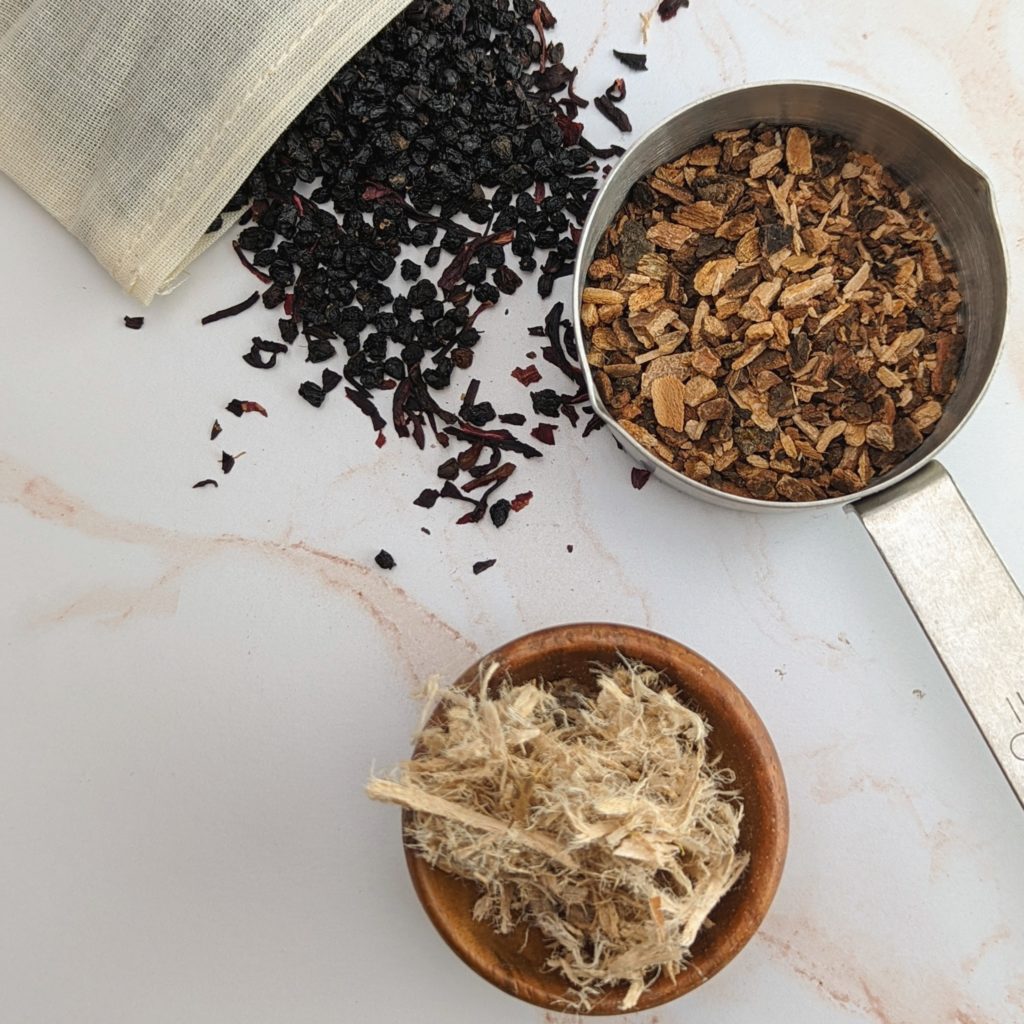Uncategorized
Getting Started with Herbal Remedies
Since beginning to carry bulk herbs at our shop, we have seen an increase in curiosity about how to use them. Herbs have become quite popular as more and more people are looking for ways to naturally improve their overall health. Herbalism is the study or practice of the medicinal and therapeutic use of plants. Many people are turning to herbalism as a more holistic approach to wellness. When first starting on your herbalism journey it is important to consider the actions that herbs take and how they can be used to support your health. Herbal actions are the effects that herbs have on the body. The list of actions can be quite daunting, here are a few to start with for beginners.
- Anti-inflammatory (reduce inflammation)
- Antimicrobial (combat harmful microbes)
- Antioxidant (protect against free radicals)
- Expectorant (loosen mucus)
- Carminative (helps digestion)
- Immune modulating (supports immune system)
- Demulcent (soothes inflamed tissues)
Herbs are incredibly versatile and the combinations are endless. If you are looking to start building your own herbal apothecary, you really can’t go wrong with the following 8 herbs.
Chamomile (carminative) has properties that may aid sleep and digestion as well as a gastric anti-inflammatory. It calms the nerves and settles the stomach.
Echinacea (immune modulating) stimulates the production of white blood cells and the process of antibody formation.
Elderberry (immune modulating, anti-inflammatory, antioxidant) is truly a must have herb when it comes to the cold and flu season.
Ginger (antioxidant) helps to ease nausea and morning sickness which can be helpful for people with indigestion and stomach related discomfort.
Marshmallow (expectorant and demulcent) is used as a useful remedy for treating coughs and colds. This root appears to moisten the lungs and help expel trapped mucus.
Mullein (expectorant) has a soothing effect on the respiratory system by loosening mucus and relaxing the muscles. Herbal ear drops containing mullein may reduce inflammation and reduce pain in the ear.
Peppermint (carminative) has been shown to relieve digestion symptoms such as gas, bloating, and indigestion. The menthol in peppermint also increases blood flow, provides a cooling sensation, and possibly eases muscle pain.
Slippery Elm Bark (demulcent) has traditionally been used to treat wounds and gastrointestinal ailments. It is rich in mucilage which can soothe inflammation in the esophagus and soothe irritation in the respiratory tract, making it perfect for cough remedies.


Glad I found this